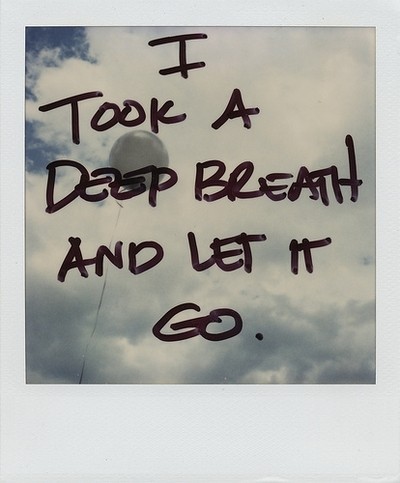Adoption is such a mixed bag of blessings. The most valuable for me as an adopted child has always been the fluidity with which I view relationships. Family is truly those who inhabit my heart, because any other definition would necessarily create a very lonely life. This definition is expansive, endless with possibilities and rich beyond compare.
The flip side of this approach has sometimes been that I place more importance on a particular relationship than does someone who has ample and strong genetic family ties. I have, on more than one occasion, realized that my sense of family with someone was misplaced; in the end, I was “just a friend” or “just a girlfriend” or whatever the small, definitive category was that I occupied. I don’t begrudge these people their categories; indeed there have been occasions when I have envied them the clear distinctions of their lives, the ease of prioritizing relationships, the simplicity of explaining how one is related to another. But that was not the hand I was dealt, and so I have bent and manipulated common categories to suit my own needs and life. And that approach has mostly served me well.
After I was three weeks old, I didn’t lay eyes on a single soul possessing my genetic thread for nearly 29 years. It was then that I met my birth mother, Kathleen, after a lengthy search. Ours was a joyful telephone reunion, followed by pages and pages of emails, futilely trying fill in the missing years since she had held me as a screaming infant in her arms. There were early morning and late night phone calls, exchanged photographs and small gifts, and a visit by her to the home I shared with Bryce, when I was newly pregnant with Sabrina. Later, when Sabrina was 18 months old, I traveled with her to Kathleen’s home on the West Coast for a short visit. Sabrina charmed her new “Gran” completely, and Kathleen seemed delighted by the prospect of a grand-baby, having missed so much with me.
Every relationship has its honeymoon period and, had I read any adoption reunion books I would have known that the same applies to adoption reconciliations. Our honeymoon period lasted longer than most, but small fissures erupted and, without the grounding of a stronger or deeper friendship, they expanded into deep chasms. There were so many parts of me that not only reminded Kathleen of her beloved younger brother, but also of her despised older brother. She disagreed forcefully with many of my life choices and was unimpressed by my choice of husband. But perhaps most damaging was the fact that, aside from my skin and hair coloring, I physically favor my birth father, a man who brutally hurt her and about whom she cannot speak. So perhaps the relationship was doomed from the beginning, or even from the second beginning, but I was determined to at least keep the line of communication open, even as she clearly withdrew from me.
My first inkling that perhaps I had been abandoned by her permanently came two years ago when Sabrina was in 5th grade and completing a family history project. I had received lots of family stories and histories from Kathleen in emails during those early, breathless days, stories I had been waiting a lifetime to hear and she’d been hoping for the chance to share. I’d compiled them all into binders that I stored with my photo albums, the closest thing I had to a family history. Sabrina thumbed through them, amazed to discover the richness of Kathleen’s family history, the surprising realization that we were, in fact, a Western homesteading and ranching family, and the terrific tales of Irish lore handed down. Then she sat down and wrote Kathleen a very sweet email, telling her of the family history project and asking more questions.
Kathleen never answered her.
I was more than a little stunned as the days dragged by and there was no response to Sabrina’s email. We worked on her project as best we could without the additional information. I offered, but Sabrina refused to abandon Kathleen’s family and instead do something about her dad’s side, which was equally interesting. She completed her project and received an A, but I was still reeling from the silence.
I sent Kathleen an email via Facebook, where I know she is very active, asking her to please reply to Sabrina even if it was just to say that she couldn’t provide anything else.
Silence.
As an adult, I was able to cognitively process the rejection. Kathleen is a woman who, at least since the harrowing and unfortunate circumstances of my conception and birth, has struggled and mostly failed at maintaining relationships. She knew she would be a poor mother, having had a very cold and critical role model to follow, so she relinquished me rather than risk perpetuating the family problems. The quirky and interesting commonalities we shared did not bridge our larger differences. And basically, no amount of genetic material could make up for what was lacking between us. I knew all of this.
But, still.
The adopted child in me cried out for her. Wondered at how she could abandon me, again. Wondered how I could be so very flawed that, even having gotten to know me, she could reject me so completely that her rejection would encompass my innocent children. Wondered at how blood was so thick for some people, but apparently counted for nothing in my own life.
I accepted Kathleen’s complete retreat and did not pursue the family history issue again. I did notice, however, that she did not unfriend me on Facebook, so I assumed that she had some lingering interest in me, my children, and our lives. I continued to send her school photos of the girls, Christmas cards and presents, and a Mother’s Day card that always read, simply, “Thank you.” I thought we had reached some kind of plateau, in which I would continue keeping that thread alive between us, and she would continue to ignore me. I rationalized to myself that there was no harm in it; after all, it wasn’t like she could actually hurt me anymore. Right?
One day not long ago, she posted an interesting exercise on Facebook. It was one of those cut-and-paste, perpetuating games in which the poster asks each of her Facebook friends to leave a one-word comment below the post, describing how the poster and the friend met. I don’t usually comment on Kathleen’s posts, but they are not usually an invitation to participate, as she is more fond of political diatribes and humorous videos. This time, though, I thought I had a very clever contribution. And so, because I am apparently a pathetically slow learner, in the comments section, I wrote “Birth.”
Later that day, I noticed her post on my timeline again, as our sole mutual friend had also provided her one-word answer. I clicked on Kathleen’s post, and as it filled the screen, I saw it. The void. The emptiness where my comment had been. It was gone. Deleted.
I should not have been surprised. You, reading this, are not surprised. But I was. I truly was.
I stared at it for a long time, the obvious irony settling in. She had deleted me. She had deleted my birth. So swiftly and easily, with merely the click of a mouse. And I knew, for what was probably the first time, that if she could do that for real, she would. She really would.
I know that getting pregnant with me changed her life dramatically and my birth father’s cowardly response to the pregnancy demolished her in ways I can’t fully appreciate. And I know that my birth nearly killed her and did disable her for a year, and that she never had a family of her own after that for reasons that only she knows. And I know that I am not what she had hoped I would be.
But I am her only child in this whole world. Her blood. And she deleted me.
In the days that followed, I felt foolish for the photos and the Christmas cards and gifts that have likely met the trashcan unopened, but not too much. I offered her as much love as I knew how and I considered her as much a part of my family as the other wonderful parents I have. I shared the most precious part of my life with her, my children, and encouraged them to pray for her and offer her love, too.
In short, I did nothing wrong. It was not my fault that I was conceived under such ugly circumstances. It was not my doing that she suffered an aneurysm during my birth. I cannot apologize for how I have turned out or who I have loved.
I wish that we could have been family. Some kind of family. But I know now that we will not be. So this holiday season, I instead turned my attention fully and completely to the family that does love me, truly and deeply and without reservation. Some ties are actually thicker than blood. And for that I shall be forever grateful.










